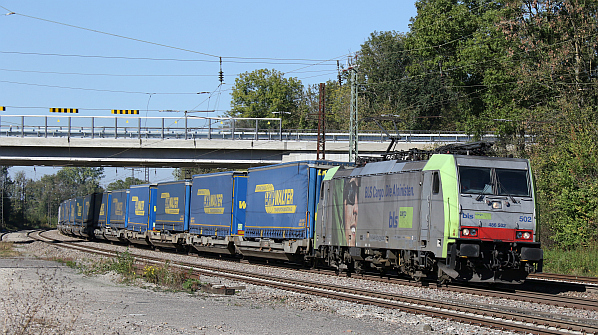EIGHT leading European trade associations representing rail freight operators, equipment providers and logistics providers have sent an open letter to European Commissioner for Transport Ms Adina Vălean and both the incoming, and current, German transport ministers Mr Volker Wissing and Mr Andreas Scheuer plus German Rail (DB) Networks CEO Mr Frank Sennhenn demanding immediate improvements to the poor reliability of the German rail network which is seriously hindering freight traffic.
Led by the European Rail Freight Association, the letter raises “serious concerns” regarding the number of delays and their length on the German rail network in the last two weeks of November. The letter claims there are delays at junctions, signalling centres and a lack of availability of DB Networks personnel. The letter also claims the delays, combined with a lack of alternative capacity being made available, has led to a situation where rail freight within and transiting Germany on main corridors is coming to a near standstill.
The letter says that the problems, some of which are long-running and linked to ongoing infrastructure upgrades in multiple locations, have become unacceptable, creating “a problem of a European dimension as the German rail network of DB Networks is central to European rail freight transport.” Six of the nine main European rail freight corridors pass through Germany. The letter warns: “the current situation therefore has the potential to cause significant reputational and economic damage to European rail freight.”
The letter goes on to say that particular problems along the Rhine Alpine Rail Freight Corridor have left it “unable to function efficiently and dozens of international freight trains have had to be either parked and/or were heavily delayed.” Planned engineering work plus emergency work to rebuild a damaged line west of Karlsruhe may have contributed to this. The letter also claims: “the problem-solving capability of DB Networks has been extremely weak – to the point that the performance of DB Networks has resulted in unnecessary bottlenecks.”
The eight trade bodies ask for several policy and operational changes to be undertaken as soon as possible, including:
- better coordination at international level between the various infrastructure managers for the planning of major works and construction site planning, adding that the “tendency to split construction works in smaller pieces leads to a less integrated view and less international coordination”
- equal rights for freight and passenger trains in the planning phase regarding restrictions and capacity loss
- creation of a freight reset procedure providing additional train paths during weekends
- more intensive monitoring of construction works with the primary goal to avoid disruption
- clear contingency plans - material, personnel, processes - to prepare for possible disturbances
- establishment of a commission which involves rail operators for the approval of works that foresee disruptions of more than 50% of the rail capacity
- proactive and comprehensive communication at management level in the event of serious disruptions, and
- strong commitment and priority for providing alternative capacity for international rail freight services, particularly along rail freight corridors.
The letter’s signatories ask that the EU Commission, German government and DB Networks “to implement the proposed measures to avoid permanent damage to European rail freight transport - making modal shift impossible.”

